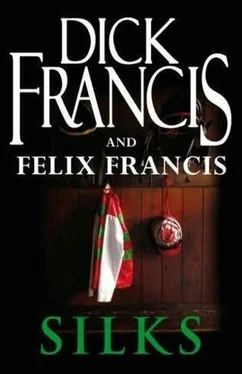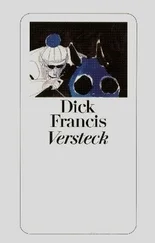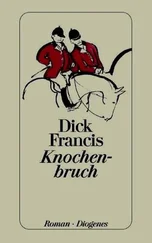‘Then what happened?’ I said.
‘He demanded the information,’ Josef said.
‘Did you give it to him?’ I asked.
‘I asked him for the money,’ he said. ‘But he said to give him the stuff immediately or he’d break Bridget’s other arm.’ He sobbed again.
‘What happened next?’ I asked when his sobs had diminished a little.
‘I had to get an ambulance,’ he said. ‘We were so afraid we would lose the baby. Bridget was in hospital for nearly a week.’
I had really meant what happened next with the man.
‘Did you call the police?’ I asked him.
‘The hospital did. They seemed to think that I had done it,’ he said. ‘The police didn’t believe me when I said it was another man.’
‘Did you tell them who he was?’ I asked. ‘Or what he wanted?’
‘No.’ He cried again. ‘He said he would come back and make Bridget lose the baby if we told anyone.’ He looked at me and I wondered if he was now thinking that telling me had been a mistake. ‘The man said that if we told anyone, he would make sure we would never be able to have any children ever.’
I was certain that Josef had believed it. Next time I’ll smash your head, next time I’ll cut your balls right off. I believed it, too.
‘But the man came back?’ I asked him.
‘Not in person,’ he said. ‘He sent me a letter at work the month after the trial was over.’
‘Saying what?’I asked, but I suspected I already knew that, too.
‘He told me to go to Julian Trent’s lawyer and tell him that I had talked to some of the jury to try and ensure that Julian Trent was convicted,’ he said in a rush. ‘But I hadn’t, I swear it.’ But he had sworn at the appeal hearing that he had. I had read the transcript.
‘Did the letter say which jurors you had to say you had approached?’ I asked him.
‘Yes,’ he said. ‘Three of them.’
I knew their names too. They were also in the transcript.
‘What was the name of the lawyer?’ I asked. I had been Julian Trent’s defence lawyer at the trial.
‘Some solicitor in Weybridge,’ he said. ‘I can’t remember the name of the firm. Funny, though, I felt sure he was somehow expecting me when I arrived. He knew exactly what I was going to say.’
‘Please try and remember who it was,’ I said to him. The solicitor who had engaged me to act for Trent at his first trial had been from a central London firm, not one in Weybridge.
‘I can’t,’ he said. ‘I had it on the letter, but the lawyer took that. I know it was in Weybridge High Street, above some shops. I could probably find it again. I was all in a bit of a daze.’
‘Was there anything else with the letter?’ I asked.
‘There was a photograph.’ He gulped. ‘It showed Bridget and me coming out of her ante-natal class at the local hospital. Someone had drawn an arrow on it with a red marker pen. The arrow was sticking into her stomach.’
Altogether I spent more than an hour with Josef and Bridget Hughes. Their lives had been totally destroyed by the visit of the friendly, well-dressed man offering money for information. He must have known they were young and vulnerable. He had drawn them into his scheme and tossed their futures away without a second thought. Josef had been stripped of the professional qualifications that he had worked so hard to obtain and had avoided a criminal prosecution only by a whisker.
But it was what he had done to their confidence that was worse. Bridget was now almost too timid to step out of her door. They were prisoners in a bed-sit, a bed-sit they could now hardly afford to live in with Josef having to do casual work stacking supermarket shelves at night. He would come home in the mornings with out-of-date food as part of his wages.
‘Please help us,’ Josef had pleaded as he came downstairs to the main door of the property. ‘I only keep going for Bee and Rory.’
‘How can I contact you?’ I asked him.
‘There’s a pay phone here.’ He pointed at it just inside the front door and I took down the number. I also gave him one of my cards.
‘Call me if you need anything,’ I said.
He nodded slightly, but I doubted that he would. His life may have been in tatters but he had kept his pride.
We shook hands inside the hallway and Josef peered cautiously round the door as he opened it to the street. I pressed some banknotes into his hand. He looked at the money and started as if to refuse it.
‘Buy some food for the baby,’ I said.
He looked up at my face. ‘Thank you,’ he mumbled, fighting back the tears. Things were so bad that he couldn’t refuse the cash, even though he clearly hated not doing so.
Next I went to see one of the three jurors from the original trial who had testified at the appeal and who lived in Hendon, close to Golders Green in north London.
George Barnett tried to slam the door in my face as soon as he saw who it was. He obviously recognized me from the trial, as I did him. He was the schoolmasterly white-haired gentleman who had been the jury foreman, but he seemed a shadow of his former self. Gone were the upright posture and the air of self-assurance. In their place there was an old-age stoop, and fear. Lots of fear.
‘Go away,’ he shouted through the crack in the door that my foot was preventing from closing. ‘I did what you asked. Now leave me alone.’
‘Mr Barnett,’ I called to him round the door. ‘I’ve come here to try and help you.’
‘That’s what he told me,’ he said.
‘I have not been sent by Mr Trent,’ I said back to him.
There was a muffled ‘Oh God’ from inside and he pushed harder on the door so that the wood bent. ‘Go away,’ he shouted again.
‘Mr Barnett,’ I called again, not moving my foot out of the door. ‘I was also beaten up by Julian Trent. I want to find out why. I need your help.’
‘Please go away,’ he said again, but this time he sounded tired.
‘All right,’ I said. ‘I am going to move my foot now.’ I lifted it and he slammed the door shut.
‘Mr Barnett,’ I called through the door. ‘Do you want to spend the rest of your life in fear, or do you want to help me stop these people?’
‘Go away,’ he said again, pleading.
I pushed one of my business cards through his letter box. ‘Call me if you change your mind,’ I said. ‘I promise I’m on your side.’
He hadn’t actually told me anything useful but he had at least confirmed what I had suspected. Julian Trent, together with his friends and relations, had left a trail of broken lives wherever they went, attacking and then intimidating good people into doing what they wouldn’t normally contemplate, perverting the course of justice for their own ends and to hell with the consequences for everyone else, including me.
But I had no intention of living in fear for the rest of my life.
It was time to take a stand.
On Thursday, I left my troubles behind and went to Cheltenham for the races.
The Foxhunter Chase, my ambition, was the following afternoon, directly after the Gold Cup. Thursday was World Hurdle day, the long-distance hurdle race for the best ‘stayers’ in the country.
Today I was having a day off as a guest of a Lambourn horse-transport company that had hired a private box. I had acted for them the previous year when I had successfully defended a charge of careless driving against one of their drivers, and they were honouring their promise to give me a day at Cheltenham as a bonus.
The private box was on the top level of the huge grandstand that would later hold tens of thousands of cheering race fans, shouting home the winners at the greatest jump-race festival in the world. This was the meeting that all owners, trainers and jockeys worked towards for the preceding twelve months. The Grand National may be the most famous English steeplechase, known around the world, but the Cheltenham Festival is where most would love to win, especially one of the two major blue-riband events, the Gold Cup and the Champion Hurdle.
Читать дальше












